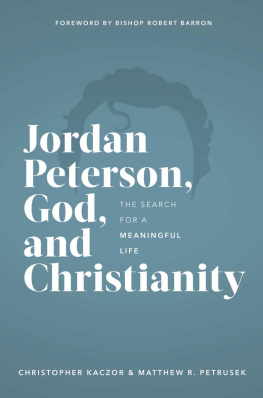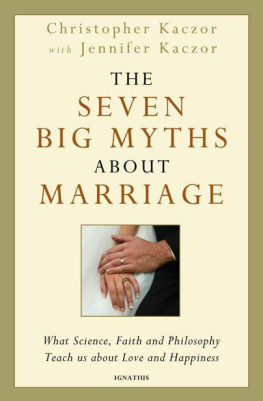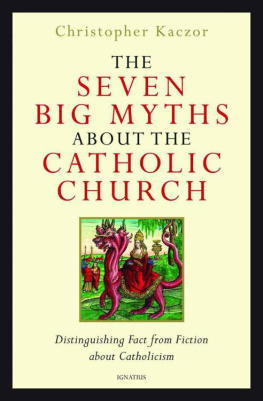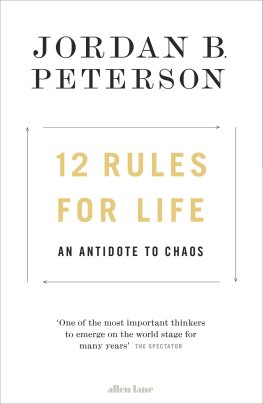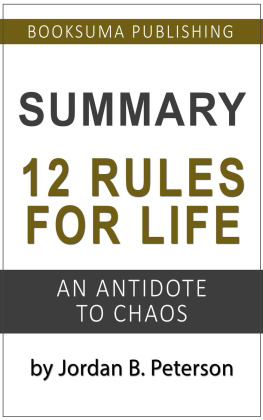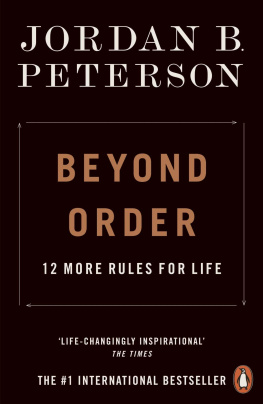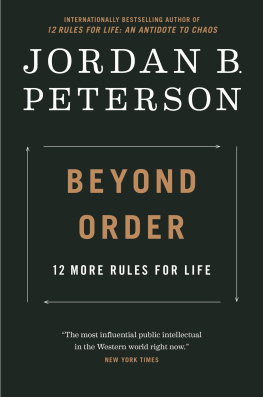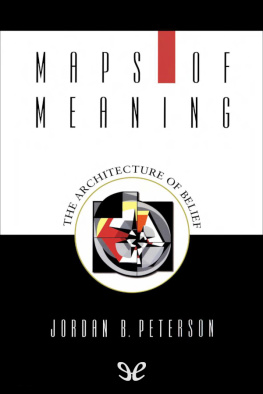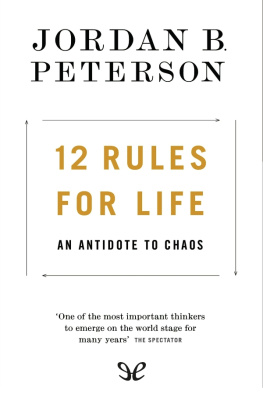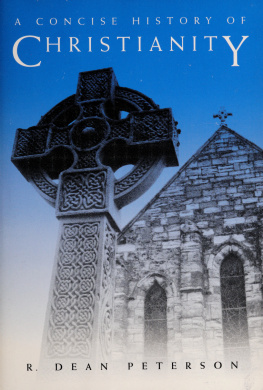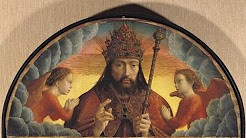Christopher Kaczor - Jordan Peterson, God, and Christianity: The Search for a Meaningful Life
Here you can read online Christopher Kaczor - Jordan Peterson, God, and Christianity: The Search for a Meaningful Life full text of the book (entire story) in english for free. Download pdf and epub, get meaning, cover and reviews about this ebook. year: 2021, publisher: Word on Fire Institute, genre: Religion. Description of the work, (preface) as well as reviews are available. Best literature library LitArk.com created for fans of good reading and offers a wide selection of genres:
Romance novel
Science fiction
Adventure
Detective
Science
History
Home and family
Prose
Art
Politics
Computer
Non-fiction
Religion
Business
Children
Humor
Choose a favorite category and find really read worthwhile books. Enjoy immersion in the world of imagination, feel the emotions of the characters or learn something new for yourself, make an fascinating discovery.
- Book:Jordan Peterson, God, and Christianity: The Search for a Meaningful Life
- Author:
- Publisher:Word on Fire Institute
- Genre:
- Year:2021
- Rating:4 / 5
- Favourites:Add to favourites
- Your mark:
- 80
- 1
- 2
- 3
- 4
- 5
Jordan Peterson, God, and Christianity: The Search for a Meaningful Life: summary, description and annotation
We offer to read an annotation, description, summary or preface (depends on what the author of the book "Jordan Peterson, God, and Christianity: The Search for a Meaningful Life" wrote himself). If you haven't found the necessary information about the book — write in the comments, we will try to find it.
Jordan Peterson, God, and Christianity: The Search for a Meaningful Life — read online for free the complete book (whole text) full work
Below is the text of the book, divided by pages. System saving the place of the last page read, allows you to conveniently read the book "Jordan Peterson, God, and Christianity: The Search for a Meaningful Life" online for free, without having to search again every time where you left off. Put a bookmark, and you can go to the page where you finished reading at any time.
Font size:
Interval:
Bookmark:

Published by the Word on Fire Institute, an imprint of
Word on Fire, Park Ridge, IL 60068
2021 by Word on Fire Catholic Ministries
Printed in the United States of America
All rights reserved.
Design and layout by Cassie Pease, Clare LoCoco, and Rozann Lee.
Excerpts from 12 Rules for Life: An Antidote to Chaos (copyright 2018), used by permission of Random House Canada, a division of Penguin Random House LLC.
All rights reserved.
Excerpts from Beyond Order: 12 More Rules for Life (copyright 2021), published by Portfolio, a division of Penguin Random House LLC. All rights reserved.
Unless otherwise indicated, Augustine quotes adapted from Nicene and Post-Nicene Fathers, Second Series , edited by Philip Schaff and Henry Wace (Buffalo, NY: Christian Literature Publishing Co., 1894). Quotes from Thomas Aquinas Summa theologiae adapted from The Summa Theologi of St. Thomas Aquinas, Second and Revised Edition , translated by Fathers of the English Dominican Province (orig. 1920, copyright 2017). Revised and edited for NewAdvent.org by Kevin Knight. Used by permission.
Excerpts from the English translation of the Catechism of the Catholic Church for use in the United States of America Copyright 1994, United States Catholic Conference, Inc.Libreria Editrice Vaticana. Used by permission. English translation of the Catechism of the Catholic Church : Modifications from the Editio Typica copyright 1997, United States Conference of Catholic BishopsLibreria Editrice Vaticana.
Unless otherwise indicated, Scripture quotations are from the New Revised Standard Version Bible: Catholic Edition (copyright 1989, 1993), used by permission of the National Council of the Churches of Christ in the United States of America.
All rights reserved worldwide.
Portions of this book first appeared in the National Catholic Register, the Public Discourse, and Angelus News. They appear here with permission.
24 23 22 21 1 2 3 4
ISBN: 978-1-943243-78-5
Library of Congress Control Number: 2020925976
Contents
Foreword
In June of 2019, I gave a presentation at the spring meeting of the United States Conference of Catholic Bishops (USCCB) in Baltimore. My topic was what I identified as one of the greatest crises facing the Church todaynamely, the massive attrition of our own people, especially the young. After laying out the rather dismal statistics regarding the nones, or the religiously unaffiliated50% of millennial Catholics now claim no religious identity, and for every one person who joins the Church, six are leavingI then shared what I take to be signs of hope, one of which is what I have called the Jordan Peterson phenomenon.
Petersons spirited and articulate opposition to the imposition of speech codes in his native Canada made him a controversial political player. He has been seen as a hero of free speech to his supporters and a right-wing ideologue to his detractors. His lectures and presentations, including a fifteen-part series exploring the psychological and archetypal significance of the biblical stories, are avidly watched and commented upon. And his book 12 Rules for Life: An Antidote to Chaos , which makes for bracing and satisfying reading, is a number one bestseller all over the world, as was his follow-up volume, Beyond Order: 12 More Rules for Life . I explicitly told my fellow bishops that my reference to Peterson in no way signaled a one-sided or uncritical endorsement of his teaching. Nevertheless, his emergence and his success are, I argued, indicators that we could get a serious message across to a wide audience. I was drawing my brothers attention to the rather extraordinary fact that a mild-mannered, soft-spoken psychology professor, speaking of serious matters in a sober way, could attract tens of thousands to arenas and millions to his social media sites.
In many ways, Peterson is doing for this generation what Joseph Campbell did for the previous one: reintroducing the archetypal psychology of C.G. Jung in an appealing and provocative manner. Jungs theorizing centered around what he termed the archetypes of the collective unconsciouswhich is to say, those primordial instincts, insights, and memories that influence much of our behavior and that substantially inform the religions, philosophies, and rituals of the human race. The Jungian template enables Peterson to interpret many of the classical spiritual texts of Western culture in a fresh waythose very texts so often excoriated by mainstream intellectuals as hopelessly patriarchal, biased, and oppressive. It also permits him to speak with a kind of psychological and spiritual authority to which young people are not accustomed but to which they respond eagerly. He has helped an awful lot of people who have been malformed by a doctrinaire secularism to open their minds and hearts to the truth embedded in the Bible and the great religious traditions.
Despite Petersons serious engagement with the spiritual life and the history of religion, however, it is not evident that the Canadian believes in God in the accepted sense of the term, a subject we discussed in our first podcast dialogue (see the transcript in the appendix). Instead, Peterson has tended to read the Bible through a Jungian, psychodynamic lens, betraying a Gnostic tendency to read biblical religion purely psychologically and philosophically and not at all historically. No Christian should be surprised that the Scriptures can be profitably read through psychological and philosophical lenses, but at the same time, every Christian has to accept the fact that the God of the Bible is not simply a principle or an abstraction, but rather a living God who acts in history. This living and personal God has remained, for Peterson, an archetype, an idea, a heuristic device. And yet, more recently, Petersons grappling with the reality of God and, in his own wording, the profoundly sane quality of Catholicism, has reached a kind of crescendo in both his life and work.
Whatever the future holds for Jordan Peterson, the book you hold is the first systematic analysis, from a Christian perspective, of both the biblical series on YouTube and his bestselling book 12 Rules for Life , with an epilogue examining its sequel, Beyond Order . Written by Christopher Kaczor and Matthew R. Petrusek, both Fellows of the Word on Fire Institute and both teachers at Loyola Marymount University, Jordan Peterson, God, and Christianity offers readers a wonderful summation of the points of contact between Petersons work and the Christian faith. Although their analysis relies heavily on the insights of Augustine, Aquinas, and the rest of the great Catholic tradition, it largely takes the mere Christianity of C.S. Lewis as its point of departure. The result, I hope, is a book that will be of interest, not only to Christians hoping to move beyond all the political rancor and better understand the spiritual and social significance of the Jordan Peterson phenomenon, but also for Peterson fans who are, perhaps for the first time in their lives, thinking seriously about what it might mean to be a Christian.
Bishop Robert Barron
Part I
A Christian Response
to the Biblical Series
Christopher Kaczor
Chapter 1
How Peterson Reads the Bible
The most influential biblical interpreter in the world today is not a pastor, a Scripture scholar, or a bishop. Hes a Canadian clinical psychologist with no formal training in biblical studies and no church membership.
Jordan B. Petersons immensely popular YouTube series, The Psychological Significance of the Biblical Stories (which has more than eight million views of the first video alone), offers a complex and wide-ranging psychological analysis of the book of Genesisthe stories of creation, Adam and Eve, Cain and Abel, Noah and the flood, the call of Abraham, and more. This series has captured the imagination of committed atheists who rave online about the wisdom Peterson has shown them in the Bible. Countless people, believers and religiously unaffiliated nones alike, report that their lives have been changed for the better by this work of explicating some of the oldest stories in human history.
Font size:
Interval:
Bookmark:
Similar books «Jordan Peterson, God, and Christianity: The Search for a Meaningful Life»
Look at similar books to Jordan Peterson, God, and Christianity: The Search for a Meaningful Life. We have selected literature similar in name and meaning in the hope of providing readers with more options to find new, interesting, not yet read works.
Discussion, reviews of the book Jordan Peterson, God, and Christianity: The Search for a Meaningful Life and just readers' own opinions. Leave your comments, write what you think about the work, its meaning or the main characters. Specify what exactly you liked and what you didn't like, and why you think so.

